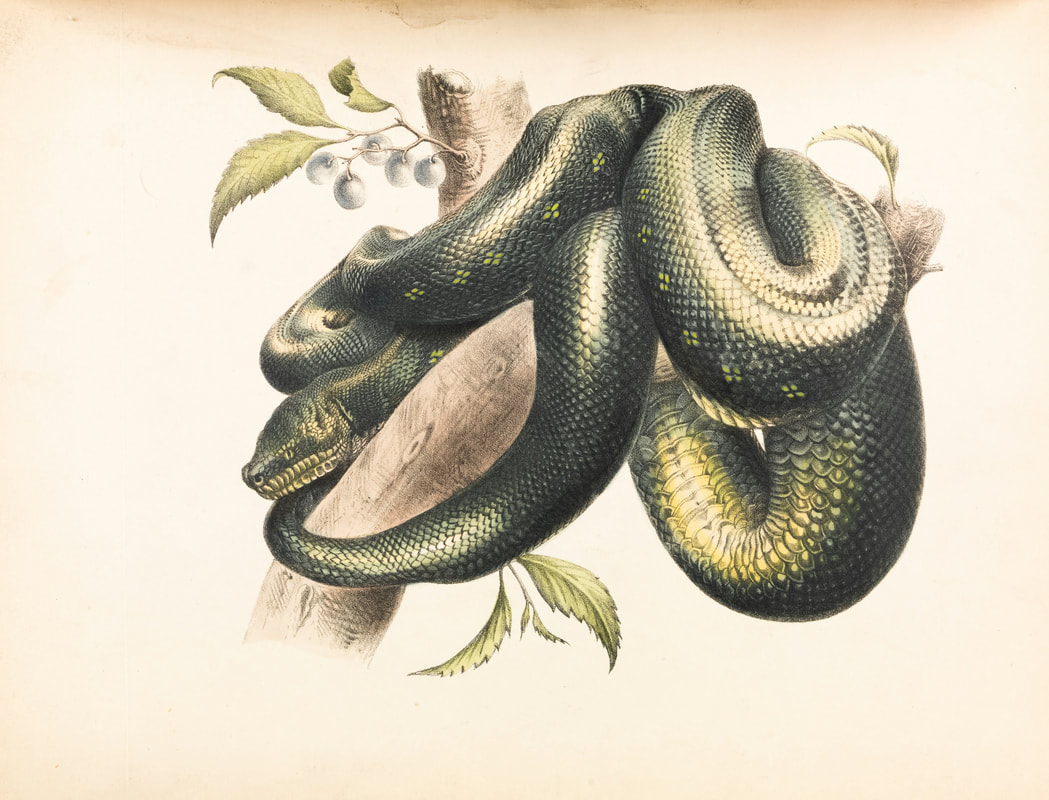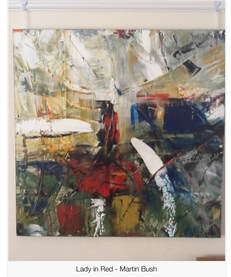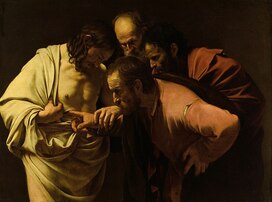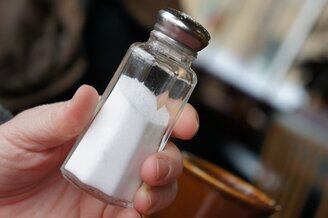
 image from Museums Victoria on Unsplash image from Museums Victoria on Unsplash What do we make of the serpent of bronze on a pole which we hear about in today’s first reading? And what do we make of Jesus, pictured similarly symbolically in John’s Gospel, as a kind of snake, lifted up on a wooden pole? What do we make of the challenging stories of sin and salvation in our readings this morning?...  on wings of an eagle (image by David Clode on Unsplash) on wings of an eagle (image by David Clode on Unsplash) One ancient way of approaching spirituality, especially in the Orthodox Christian traditions, is to speak of three kinds of birdlife. The first of these, sometimes known as the ‘carnal’ life, is represented by farmyard chooks. These birds peck at the dust, clucking around, and sometimes fighting each other: confined to an enclosure, with their products used by others or being fattened up themselves for slaughter and consumption. The second, sometimes known as the ‘natural’ life, is represented by the rooster. This bird, with more intellectual capacity, is able to rise above, and see beyond, the farmyard dust; and, whilst remaining tied to it, is able to influence and manage aspects of the world of the chooks, at least to a degree. The third bird however is the eagle: who flies free, majestic, and far beyond, the limited horizons of both the chooks and the rooster. Not for nothing has the eagle thus been highly revered, across many cultural and faith traditions, not least among many First Nations peoples: being typically regarded as symbolic of great and deep strength, leadership, and vision. Now, there is of course the danger in such analogies of forms of spiritual elitism, a disregard of the ‘ordinary’, and disdain towards the material. Yet, as we hear Isaiah 40 verses 21-31 today, we are encouraged to be lifted up as ‘on eagle’s wings’. So to what kind of bird do we choose to look? What kind of life do we choose?...  photo by Mark Konig on Unsplash photo by Mark Konig on Unsplash Jeanne d’Arc, the Suffragettes, Mahatma Gandhi, Rosa Parks, the Tent Embassy, Mardi Gras ‘78ers, Tiananmen Square protestors, Peter Tatchell, Bob Brown, the Occupy movement: what do these people have in common?... Would we consider that some, at least, of them have been prophets, or prophetic, in their words and actions? I think there is a case, on at least three grounds: firstly, because they have been typically disturbing to many, and certainly controversial; secondly, because, at the heart of their actions has been a claiming, and transforming, of space reserved, essentially as sacred, by others; and, thirdly, because they ask us to consider what is really true. This is also at the heart of today’s readings, which ask us to reflect on who, and what, is truly prophetic. But let us add some more people into this. How about those who refused to keep to government rules about gathering together and living appropriately during the COVID-19 lockdowns, or the invaders of the Capitol buildings in Washington on 6 January 2021, or the Christian Lives Matters folks who attacked us and others last year? Are they, in their own way, also prophets, or prophetic? After all, they too are typically controversial and disturbing. They also claim and seek to transform spaces which have been defined by others in different ways. And they too ask us to consider what is truly prophetic. For are we just consecrating our particular cultural and political preferences when we say some people or things are prophetic? Or is there something more to it?...  Maybe what she wanted to do was punch Him (God) But she couldn’t So Sarah laughed Didn't Suzanne Terry put it well in her poem 'Sarah Laughed'? How many of us have wanted to punch God, or worse, for what has happened, or not happened, to ourselves and others? In Genesis chapter 18, Sarah laughs out of her deep experiences of sorrow, anger, and utter frustration, with God. After all she has experienced, as a childless migrant woman, in an ancient patriarchal culture where child-bearing was so important, how dare God turn up and now declare fresh hope. Why take so long to give this gift? Why put Sarah through such trials? We can easily identify. As elsewhere in the Bible, we are not presented with a simple moral or spiritual inspiration. Rather we encounter a very human struggle, with which we are invited to wrestle. Suzanne Terry’s poem is a product of this. For she was responding to a book entitled Those Who Wait: Finding God in Disappointment, Doubt and Delay. This, like other writings by Tanya Marlow, seeks to explore how we live with the realities of suffering…  image: Monty Lov on Unsplash image: Monty Lov on Unsplash Last year SBS Insight told some of the diverse personal stories of faith, loss of faith, and changing faith, in contemporary Australia. One was of a young Croatian Australian woman who has committed her life to God through a faithful adherence to Islam, including covering her head and body in conservative traditional dress. In this she has found a profound sense of peace and flourishing. Some significant resistance has however come her way. She experiences some of the continuing Islamophobia within our society, and, in addition, strong extra kickback from some white Australians, not least fellow Croatians. For what, some would say, is a nice, white, western, and well educated, young woman doing taking up such a religious path? Is this not also, some would say, a betrayal of her family, and culture, too? After all, religiously speaking Croatians are almost exclusively Christian, and in particular Catholic. What on earth is this young woman doing? What is happening here? We might say something similar of the stories in our lectionary this morning, each of which involves a breaking with powerful expectations, and a profound response to needs of salvation which are simply not met by conventional culture or practice. Abraham, Sarah, Matthew, the synagogue official, and, not least, the hemorrhaging woman: each challenge us. They invite us to reflect upon what is bleeding in our own lives, hearts and souls, and invite us to reach our in faith ourselves. For what are our needs that require transformation? What salvation do we seek? What of God is calling to us?...  image: The Incredulity of Saint Thomas by Caravaggio image: The Incredulity of Saint Thomas by Caravaggio Adjectives can be misleading and sometimes destructive. The former US President Donald Trump knows this particularly well. He deliberately chooses adjectives for his opponents. So we have had ‘LIttle’ Marco Rubio, ‘Lyin’ Ted Cruz, and, most notoriously, ‘Crooked’ Hillary Clinton. This both essentialises an alleged feature of a person whom Trump attacks and also contributes to a particular narrative about what matters. Trump leads in this. Yet he is not alone. Historically the Church has also done this, not least with our Gospel reading today. For if I asked most people for an adjective for Thomas, they would probably say ‘Doubting’. Indeed, throughout my life, I have generally heard today’s Gospel interpreted in only two ways. On the one hand, this story is told, typically by conservatives, as an encouragement to have true belief, and not to doubt. On the other hand, often somewhat defensively, liberals and progressives have spent much energy talking about the value of doubt. Now these approaches are really only two sides of the same, often quite distorting, coin. Instead, with recent voices from the margins, not least trauma-responsive theologians, how about we try viewing today’s Gospel text from a quite different standpoint? Instead of the framework of intellectual faith and doubt, let us take seriously the important bodily aspects of this story. Instead of obsessing about creedal truth, let us be attentive to wounds. Instead of focusing on the possibilities of the after life, we might reflect on what it means to live, together, after trauma. These, and very different aspects of Thomas, deliver us from unhealthy faith and offer pathways to healing for us all…  My wife Penny and I met at theological college. It was certainly not love at first sight. I was quite introverted, not trying to give away much of who I was, and Penny – well, Penny was very nervous and came across as a terrible caricature of an English middle-class blue stocking type of woman: think, those of you who can remember back that far, of Joyce Grenfell in the old St Trinian’s films. Our college was overwhelmingly full of men, with this being only the second year a handful of women had been admitted. So, when I met Penny in the first hour or so after arriving, I thought: ‘well, if this is how the women are here, I am simply not going to survive!’ I guess that was one factor in our initial relationship: sheer survival in an age and culture still trying to come to terms with the equality of women as a whole, never mind wider gender diversity. It was an earlier reminder that, if Penny and I were to minister, it would be as salt. We would be adding fresh flavour to both the Church and the wider world, seeking to provide healing or simply preservation for some of us, and, from time to time, perhaps irritating others into whose wounds we might be placed to aid healing. Maybe some will have views on how well, or otherwise, we have done that so far. Our hope and prayer is, in the words of Jesus in our Gospel reading today, that we, with others, will never lose out saltiness…  A few weeks ago I invited us all to address the question of Jesus: ‘who do you say that I am?’ This is central to the Christian spiritual pathway. As I affirmed, the answers to that question will differ, as they have differed, subtly or significantly, down the centuries. Today, on St Luke’s Day, Penny and I want to ask three more questions, which also feed into our community visioning day. They seek to open up three important areas of life: firstly, healing; secondly, hospitality; and thirdly, how do we hand on hope, as we experience it in our spiritual lives. Penny and I will do this together as a conversation. For, after all, isn’t one of the most beautiful stories in Luke’s Gospel that of the conversation between the disciples on the road to Emmaus, as they rediscover the living Christ in new ways? Before all that however, I want to ask Penny about our relationship to St Luke. For we’ve had a bit of history with St Luke, haven’t we?...  Human beings can’t walk on water. This is fairly easily observable. However I was once told by no less a person than a church warden, that if I could build a labyrinth for meditative walking in the religiously conservative city of Toowoomba then I could walk on water. She was trying to tell me it was impossible. But the Toowoomba City Labyrinth was built and continues as a great tool for prayer. And – I can’t walk on water! Nor, I venture to suggest could Jesus. If Jesus did walk on water, then we rid ourselves of one problem – the questioning of the historical accuracy of the Biblical account. But we create another - a Christ who only pretended to be human. Because humans can’t walk on water. We can of course protest that Jesus is the Son of God and can do anything, but the moment we do that we open up a whole other set of problems around why Jesus does not do a whole heap of other things that might be felt more useful, like ending wars or saving children’s lives. If we do not want to turn the human Jesus into a capricious divine figure masquerading as a human being, we might have to accept that he did not in fact walk on water. So, what about this story then? How are we to read it? Well some scholars resolve the problem quite neatly by declaring it to be a misplaced resurrection story. This makes a lot of sense. This is why the disciples for examples are afraid and think they are seeing a ghost. However, I do not think that is the whole answer... |
Authors
sermons and reflections from Penny Jones & Josephine Inkpin, a same gender married Anglican clergy couple serving with the Uniting Church in Sydney Archives
June 2024
Categories
All
|
 RSS Feed
RSS Feed